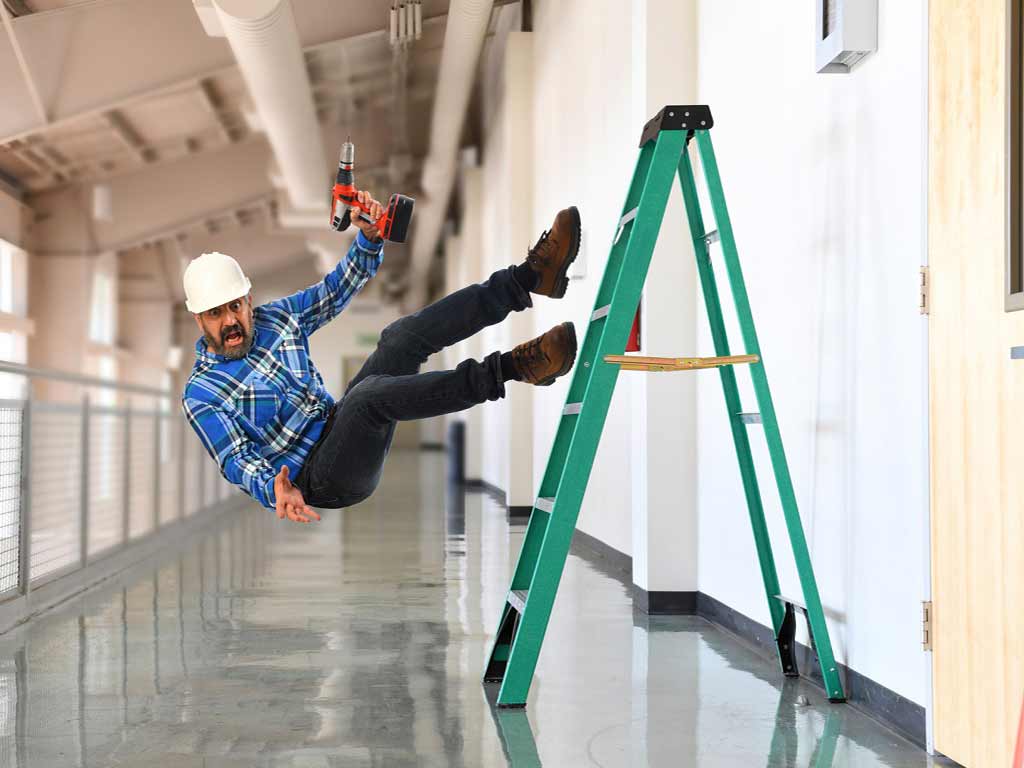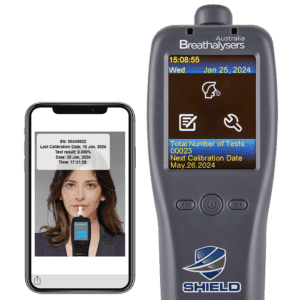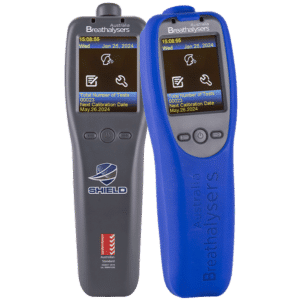Alcohol Testing at Work: 10 Reasons to Conduct Them in Your Workplace
04 April, 2024
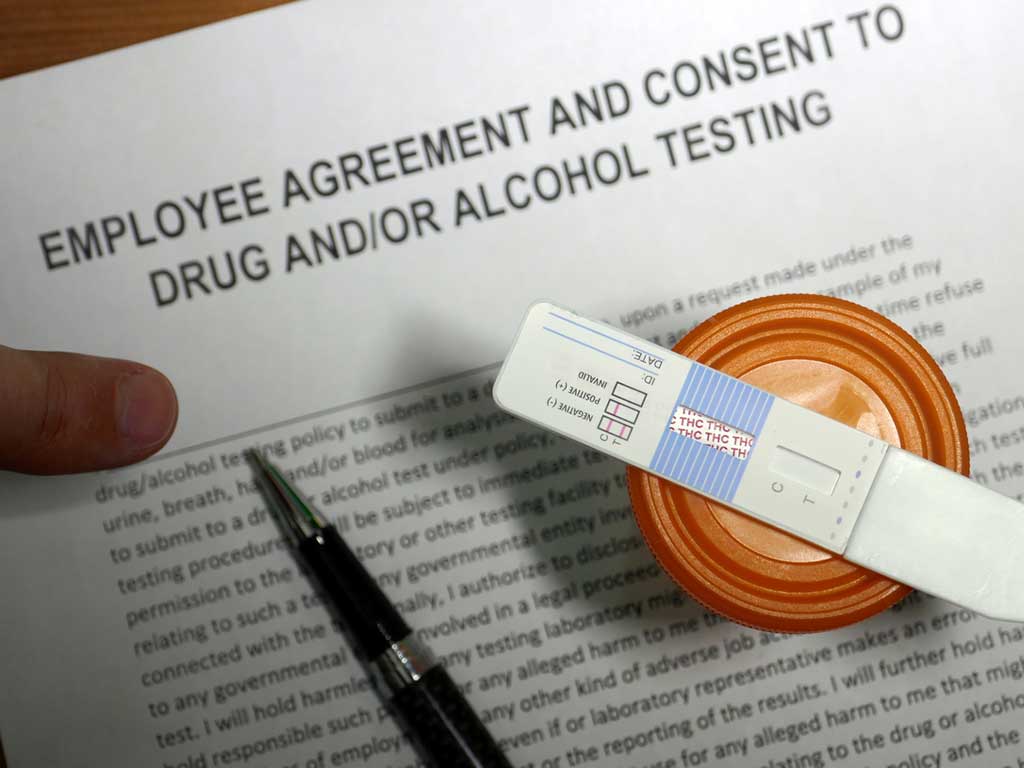
Alcohol testing at work is an important aspect of maintaining a safe and healthy work environment. It is a standard practice of many industries to protect the well-being of employees and the public. As such, there are several reasons for conducting alcohol tests. The foremost reason is to prevent accidents due to alcohol intoxication. Others include improving productivity, complying with legal requirements, and deterring substance abuse.
There are several methods to test for alcohol at work. The standard procedure is an alcohol breath test. It is a quick and non-invasive method through the use of a breathalyser. Urine and saliva testing are also reliable alternatives. In addition, companies should have a comprehensive alcohol policy in place to ensure consistency and fairness in testing procedures. This article will present the top 10 reasons for conducting alcohol testing in the workplace and their considerations.
Jump to a Section:
- Alcohol Testing at Work for Workplace Safety
- Alcohol Testing at Work for Increased Productivity
- Alcohol Testing at Work for Legal Compliance
- Alcohol Testing at Work for Prevention of Workplace Accidents/Incidents
- Alcohol Testing at Work for Maintaining an Alcohol-Free Workplace
- Alcohol Testing at Work for Insurance Requirements
- Alcohol Testing at Work for Pre-Employment Screening
- Alcohol Testing at Work for Determining Post-Accident/Incident Causes
- Alcohol Testing at Work for Identifying Employee Substance Abuse Issues
- Alcohol Testing at Work for Deterrence
Alcohol Testing at Work for Workplace Safety
The primary purpose of implementing alcohol testing at work is to ensure employee safety. Severe alcohol intoxication can impair judgment and reasoning, perception, concentration, and coordination. This can negatively affect the ability to perform job duties, especially those involved in operating motor vehicles or machinery. Hence, it increases the risk of accidents, injuries, and even fatalities.
Alcohol affects each person differently. People with high tolerance can still have high blood alcohol levels that impair their abilities. Intoxication may not be evident for some individuals, but it may still pose safety risks. Implementing routine alcohol testing can monitor and identify employees who are under the influence of alcohol and take necessary measures.
This proactive approach to workplace safety can save lives and prevent costly accidents. Many employers consider this a valuable investment in protecting their workforce and the public. In addition to safety concerns, alcohol testing promotes a culture of responsibility and accountability within the organisation. Some companies have awareness programs to educate employees on the dangers of excessive alcohol consumption and abuse.
Benefits of a Safe Working Environment
- Fewer accident risks: A clean and sober workforce is less likely to cause workplace accidents, leading to fewer injuries and fatalities.
- Improved health and well-being: Employees have lower risks of getting alcohol-related illnesses, such as high blood pressure, heart disease, stroke, liver disease, and cancer.
- Higher performance: Employees are able to work optimally with lesser downtime and absenteeism rates.
- Lower healthcare costs: Few accidents result in lower insurance premiums and compensation claims for the company.
- Reduced legal liabilities: By ensuring a safe working environment, companies can mitigate the risk of facing lawsuits due to alcohol-related incidents.
Alcohol Testing at Work for Increased Productivity
One of the benefits of alcohol testing at work is increased productivity. Employees who are not under the influence of alcohol are more focused, alert, and productive in their work tasks. In addition, there are fewer risks for mistakes, either in data processing, decision-making, or operating technical equipment. This can lead to high outputs and accomplishing targets within the deadline.
Alcohol testing can also help reduce absenteeism and improve employee morale. Moreover, the prohibition of alcohol may lead to individuals managing their alcohol consumption during off-work hours. Consequently, they are more likely to show up on time and be fit for duty. It can also lead to a more positive work environment and higher levels of employee engagement.
Furthermore, a stable workforce often has fewer absenteeism and turnover rates. Companies can experience increased employee retention and loyalty by creating a safe and healthy workplace. This can result in cost savings related to recruitment, training, and onboarding of new employees. Overall, alcohol testing can contribute to fewer errors and high-quality outputs.
Increasing Productivity Can Benefit Both Employer & Employee
Increasing productivity through alcohol tests can benefit both employers and employees. For the management, higher productivity means increased profitability and competitiveness in the market. With employees performing at their best, companies can meet demands or reach targets efficiently and effectively. This can result in business growth and expansion opportunities.
For the employee, better productivity can lead to higher job satisfaction and fulfilment. When individuals are able to accomplish more, they may feel a sense of pride in their work. Additionally, achieving consistently high performance can lead to recognition, promotions, and career advancement opportunities. This can result in job security or higher wages.

Alcohol Testing at Work for Legal Compliance
Another reason companies conduct alcohol testing at work is for legal compliance. Certain industries are required by law to provide a safe workplace. It includes jobs with safety-sensitive roles, such as transportation, construction, and mining. Thus, alcohol testing is one of the proactive measures to identify and prevent alcohol-related hazards. It allows employers to manage these risks and reduce the chances of workplace accidents.
Implementing alcohol testing programs enables organisations to comply with federal regulations and state laws. This helps companies to uphold their duty of care to employees. Failure to comply with these regulations can result in legal and financial consequences, including fines, lawsuits, and damage to their reputation.
It is vital for companies to establish a comprehensive alcohol policy before implementing alcohol testing programs. This policy should outline the reasons for conducting alcohol tests, the procedures to be followed, and the consequences of violating the policy. Therefore, it sets realistic expectations for employers and employees. Clear communication of this policy to all employees is essential to ensure understanding and compliance.
Can Employees Refuse to Get Tested?
Workplace testing can be a sensitive issue. Some individuals may see it as an invasion of privacy. The right to refuse an alcohol or drug test may depend on the situation. In general, employers have the legal right to require workers to undergo alcohol testing, especially in safety-sensitive industries.
A refusal may result in disciplinary action, including termination, especially if there are reasonable grounds. If an employee is terminated because of non-compliance, this may make them ineligible to file a claim for unemployment benefits. On the other hand, employees can refuse a test if they have a legitimate reason, such as a medical condition.

Alcohol Testing at Work for Prevention of Workplace Accidents/Incidents
Alcohol testing at work is crucial for the prevention of accidents and other untoward incidents. Employees with alcohol content can pose serious safety risks to themselves and their colleagues. For instance, they are more likely to make errors due to decreased coordination and impaired judgment. This can lead to serious injuries, property damage, and even fatalities.
By conducting alcohol screening, companies can identify employees who are unfit for work due to alcohol intoxication. This allows employers to take appropriate action, such as removing the employee from duty. Moreover, companies can implement the test regularly, such as before workers enter safety-critical premises, at random, or with reasonable suspicion.
For-cause testing is a procedure that employers can use when they have reasonable suspicion that an employee is under the influence of alcohol. This can include observable signs, such as slurred speech, bloodshot eyes, unsteady gait, or the smell of alcohol on their breath. An alcohol test can confirm these suspicions and prevent potential accidents or incidents in the workplace.
Identifying Potential Issues
- Regular testing can help identify employees who may be under the influence of alcohol while on the job, reducing the risk of accidents.
- Workers must know how to recognise the signs of impairments and report them to management for timely prevention or intervention.
- A clear policy must outline what is considered risky or dangerous behaviour in the workplace.
- Although alcohol testing is legal, employers must uphold privacy rights and follow relevant laws and regulations.
- Human Resource (HR) personnel or managers must follow strict protocols in dealing with impaired employees or those who test positive for alcohol.
Alcohol Testing at Work for Maintaining an Alcohol-Free Workplace
Maintaining an alcohol-free environment is vital for ensuring a safe and healthy workplace. Alcohol testing at work is one of the most cost-effective measures to achieve this goal. By implementing testing programs, companies can deter employees from consuming alcohol before or during work hours. This helps create a culture of accountability and responsibility among employees.
High-risk industries implement zero-alcohol tolerance policies to prevent or minimise the hazards of alcohol. This means that employees must not have any alcohol content in their system while working. Thus, a minimal amount may lead to corresponding disciplinary measures. On the other hand, some businesses with lesser safety risks may set a certain alcohol limit.
Furthermore, communicating to employees that alcohol is strictly prohibited during work hours can help deter alcohol use. It also enables individuals to know that their safety is a priority. Therefore, it encourages their cooperation and adherence to company policies. It also promotes a collaborative effort to maintain a safe and alcohol-free workplace environment.
Maintaining Public Image
A safe workplace also merits a clean public image. In many cases, frequent accidents can tarnish the reputation of the company. Thus, alcohol testing plays a crucial role in maintaining a good name and image. It also ensures high trust ratings from customers, clients, and stakeholders.
Aside from a good public image, an alcohol-free workplace mitigates the risk of investigations or legal liabilities due to accidents. Additionally, companies can demonstrate their commitment to safety and legal compliance. This can also attract high-quality potential employees who value safety. Lastly, alcohol testing as a proactive approach is more cost-effective compared to doing damage control.
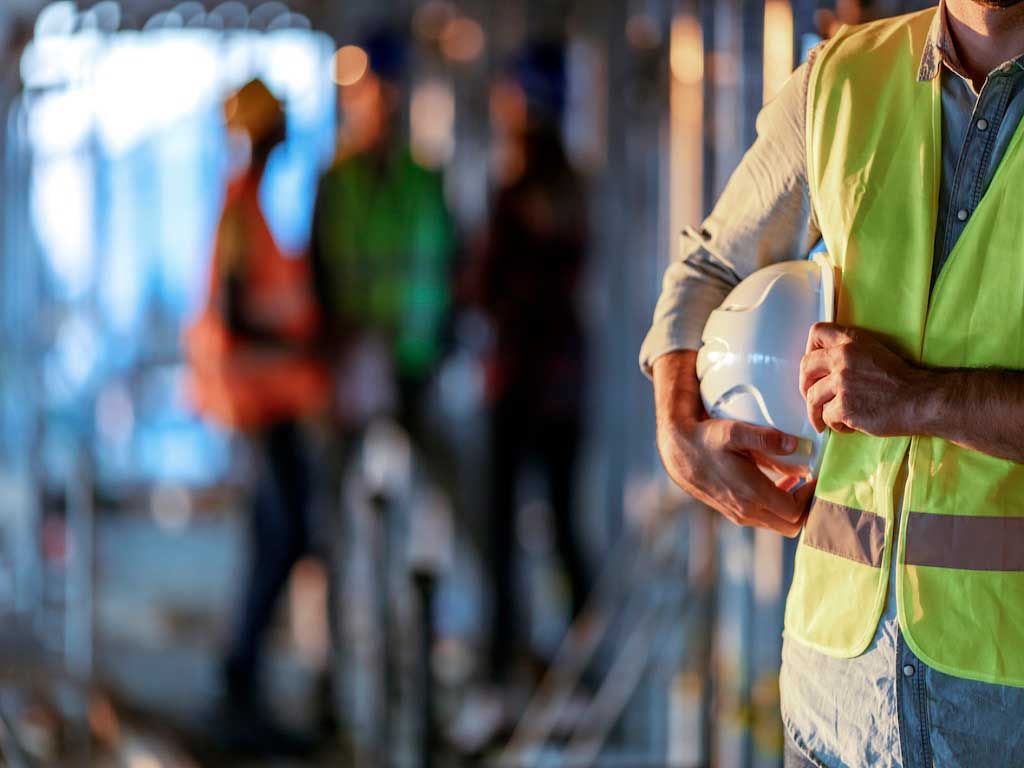
Alcohol Testing at Work for Insurance Requirements
Alcohol-related accidents can lead to high costs in terms of insurance claims. By implementing alcohol testing at work, companies can reduce the risk of accidents and subsequent insurance claims. This can lead to lower insurance premiums and a better overall financial standing for the company.
Some insurance providers may require companies to implement alcohol tests as part of their policy. This is to ensure that workplaces are taking necessary measures to prevent accidents and reduce risks. If an employee is involved in an accident due to impairment, it could result in a denial of insurance coverage. By conducting these tests, companies can demonstrate their commitment to safety, which can lead to lower insurance premiums.
An alcohol policy should state the extent or scope of company liabilities regarding alcohol-related incidents. This is to communicate that there are limitations to the responsibilities of the company and that employees are accountable for their actions. It also helps determine the appropriate disciplinary measures in case of violations. Therefore, it helps deter alcohol issues.
Importance of Compliance
Workplace alcohol testing shows compliance with state laws as well as insurance requirements. Adherence to these regulations helps protect the company from legal repercussions and potential fines. Mainly, it helps maintain a low insurance premium. Many insurance providers view businesses with alcohol policies as less risky and are more likely to offer favourable conditions.
Moreover, signs of alcohol abuse or addiction may lead to refusal of coverage or demand higher premiums. Overall, compliance can significantly help organisations avoid high healthcare and insurance costs and any legal liabilities. Implementing alcohol tests helps protect their employees, assets, and reputation.

Alcohol Testing at Work for Pre-Employment Screening
One of the applications of alcohol testing at work is for pre-employment screening. It is a standard practice in many industries to meet safety standards. This screening process helps employers identify any red flags regarding alcohol use before hiring an individual. It also ensures that prospective employees do not pose a risk to themselves or others while on the job.
Pre-employment tests can help determine if a job applicant has any substance issues, such as an alcohol use disorder. This process is vital for workplaces where sobriety and safety are paramount, such as transportation, healthcare, and manufacturing industries. By conducting alcohol tests during the hiring process, companies can prevent potential accidents and ensure a safe working environment for all employees.
It is essential for employees to inform job applicants beforehand that alcohol testing is part of the hiring process. This way, candidates can make an informed decision about whether they want to proceed with the application process. It also allows them to prepare for the test and ensure it will not affect their eligibility. Urine and hair follicle testing are often used for this.
Importance of Assurance and Reliability
- Pre-employment testing provides assurance that prospective employees do not have any alcohol-related issues that could affect their job performance.
- Minimises safety threats to the workplace.
- Employers are confident that they are hiring individuals who are fit for the job and do not pose a risk due to alcohol use.
- Sets a clear expectation of alcohol-free workplace conduct from the start.
- Maintains high productivity by avoiding hiring individuals who may disrupt the work environment with alcohol-related incidents.
- Avoids potential legal liabilities.
- Promotes fairness and equality in the hiring process by making sure all candidates are held to the same standards.
Alcohol Testing at Work for Determining Post-Accident/Incident Causes
Post-incident alcohol testing at work is crucial for determining the causes of accidents. Testing for alcohol helps identify whether alcohol consumption was a contributing factor in an incident. In case of a positive test result, it mitigates legal risks for employers. The test can provide evidence that the company was not negligent, especially if they have an alcohol policy in place.
Another benefit of alcohol testing after an accident is obtaining valuable information for employers to take corrective action. This test can help determine if there are any loopholes in their safety protocols that need rectification. By identifying the root cause of the incident, companies can implement preventive measures to avoid similar circumstances in the future.
It is important to conduct this test within a certain number of hours after an incident. This is to ensure the accuracy of the results and avoid any potential interference from external factors. Employers should also ensure that the testing process is fair and consistent for all employees involved in the accident.
Effective Methods
In incidents where alcohol use is suspected, a breath alcohol test is often used. Employers may require concerned employees to provide a breath sample to a breathalyser for analysis. The breathalyser device can measure the Blood Alcohol Concentration (BAC), which indicates the level of impairment.
On the other hand, oral fluid testing is a preferred testing method for drug screening. This option is efficient in detecting recent drug use because of its short detection window. Therefore, it can determine if a person has recently consumed substances that led to the accident. Both alcohol and saliva tests also have low chances of sample adulteration.

Alcohol Testing at Work for Identifying Employee Substance Abuse Issues
Aside from detecting employee impairment, alcohol testing at work can also help to identify substance abuse issues. Companies may conduct random tests to monitor alcohol use or intoxication. Random testing provides the element of surprise, making it difficult for employees to prepare or manipulate the results. This helps in identifying potential problem areas within the workforce and allows for early intervention.
An alcohol test can also determine possible abuse, especially if a particular employee exhibits signs of alcohol dependency or shows a decline in job performance. They may combine several strategies, such as an alcohol disorder screening test and diagnostic testing. This can help rule out any underlying issues and take corrective measures.
Companies may utilise hair testing to detect long-term alcohol abuse. Hair tests can trace substances for the past 90 days, providing a historical record of alcohol consumption. The extended period makes it easier to identify consumption patterns that may indicate abuse or dependency. Consultation with a health professional can also help diagnose an alcohol use disorder, which is a serious medical condition.
Employee Assistance Programs (EAPs)
Employee Assistance Programs (EAPs) are an essential resource for employees who may be struggling with alcohol abuse issues. These programs offer a wide range of services, such as counselling and rehabilitation, to help individuals recover. This allows concerned employees to address their problems without losing their jobs.
Identifying alcohol-related issues early on can support employees to manage their alcohol use confidentially. It is often a part of an organisational program to promote employee wellness. Furthermore, completing the program allows employees to return to work with a fresh start. However, individuals may need to undergo further testing to prove sobriety.
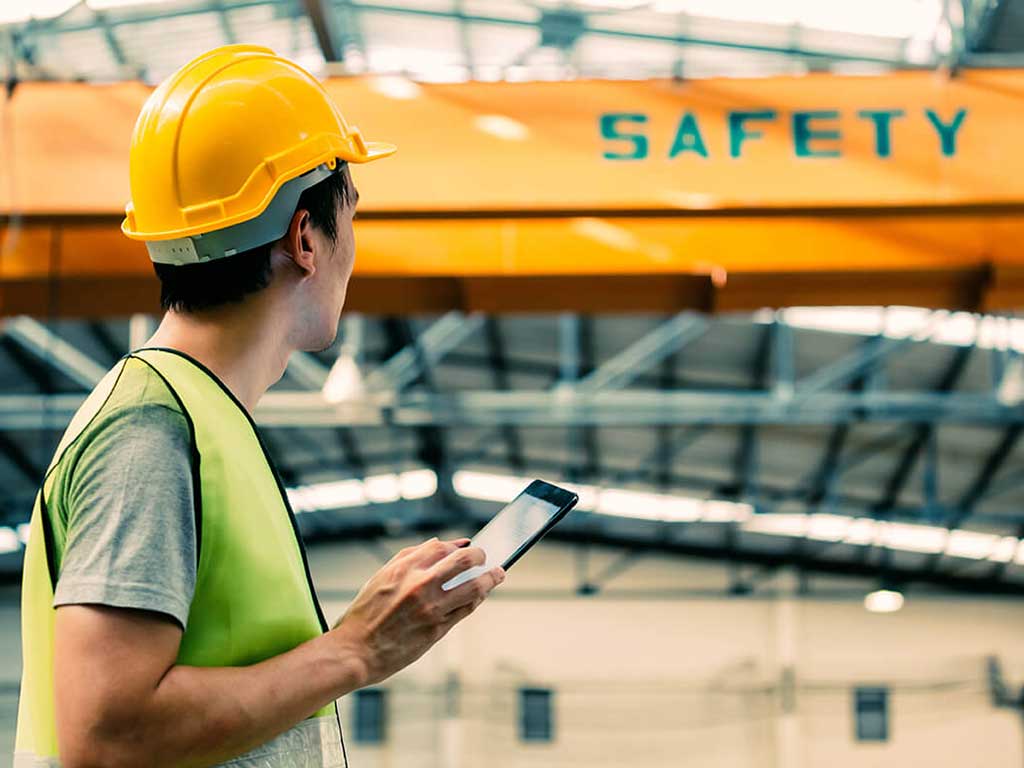
Alcohol Testing at Work for Deterrence
Regular alcohol testing at work may also be effective in deterring employees from abusing alcohol in the first place. Knowing that there is a possibility of being tested can discourage individuals from consuming alcohol before coming to work or while on the job. As a result, it can help create a safer work environment and reduce the risk of accidents.
Alcohol screening helps avoid not only the short-term safety risks of alcohol consumption but also deters substance abuse. This is where random testing can be beneficial. Moreover, a well-developed policy helps enforce accountability among employees and sets clear expectations regarding alcohol use in the workplace.
Violations or non-compliance of relevant policies can have serious consequences. Employees may face suspensions or termination if they test positive for alcohol. Additionally, it can have legal implications for serious cases, especially if accidents or harm to others are involved. These measures and consequences can serve as a deterrent for alcohol abuse or dangerous behaviour among employees.
Examples of Responsible Employee Conduct
- Managing alcohol consumption to avoid coming to work intoxicated.
- Not drinking during work hours.
- Not driving or operating machinery under the influence of alcohol.
- Consuming alcohol in moderation during work-related events or social gatherings.
- Respecting and adhering to company policies regarding alcohol use in the workplace.
- Submitting to alcohol tests when required.
- Seeking help or support when experiencing alcohol-related issues, such as dependency.
- Participating in alcohol education programs to improve knowledge and awareness of the risks of alcohol use.
- Reporting suspicions of substance use or impairment to a manager.
- Discouraging alcohol abuse among colleagues and offering support when needed.
Conclusion
Alcohol testing at work is one of the proactive measures to ensure a safe and healthy environment. It serves multiple purposes, including preventing accidents, identifying substance abuse, and promoting employee well-being. By implementing a comprehensive policy, employers can enforce effective safety procedures. In addition, it offers more benefits, including increased productivity, ensuring legal compliance, and keeping low insurance premiums. Keeping an alcohol-free workplace can also improve employee morale and reputation.
There are various scenarios where alcohol tests may be necessary. One of the common practices is pre-employment screening. This aids employers in hiring the most suitable candidate for the job. Another case is random testing to monitor alcohol impairment at any time. Additionally, a post-incident test is crucial in determining if alcohol is a contributing factor that led to an accident. Through these tests, companies can make informed decisions to protect the safety of employees and the general public.








